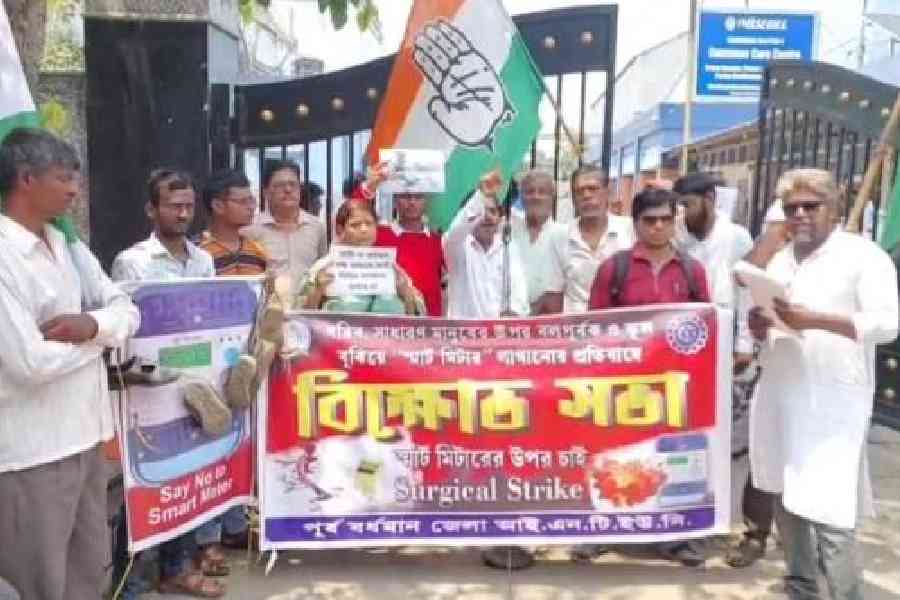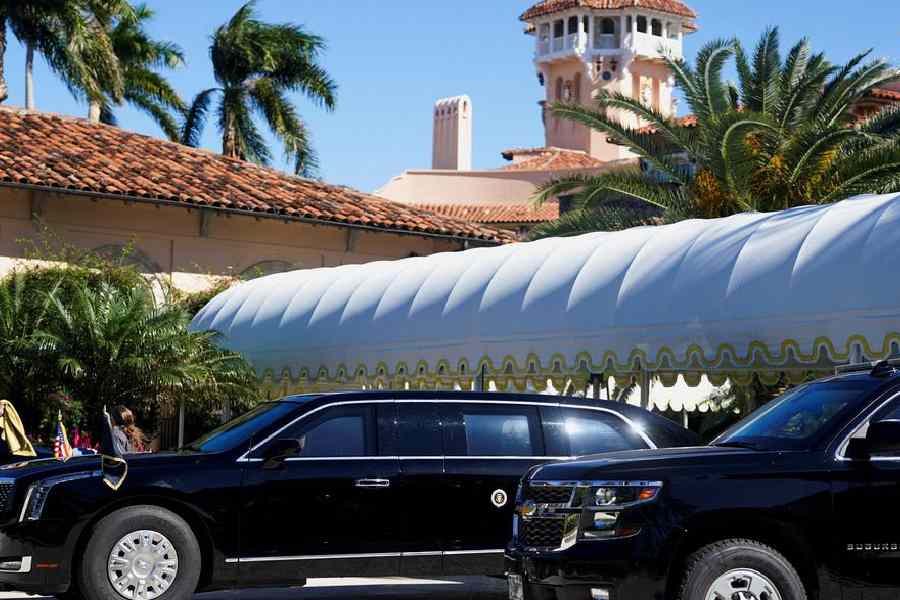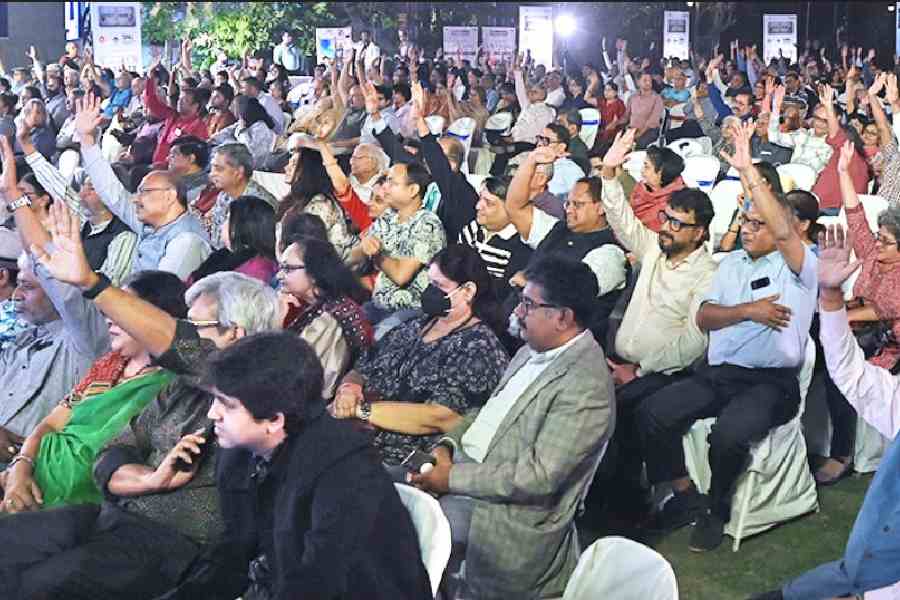The Bengal government has pressed the pause button on the installation of prepaid smart meters for domestic power consumers after it faced stiff resistance from common people in several parts of the state when conventional electricity meters were being replaced.
The move shows that the ruling establishment doesn't want to go ahead with the project, which has already triggered public protests, in the run up to the Assembly polls in 2026.
“The government has decided to put installation of prepaid smart meters at the residences of common people on hold for an indefinite period following the emergence of complaints after the power department started fitting the meters for domestic consumers. However, the government will continue with the smart meters in government offices and commercial establishments,” said a source in the government.
Agitations against the smart meters were gaining momentum in areas where they were being installed. Consumers who fitted the smart meters complained of overbilling and difficulties in reconnecting the supply once the power was disconnected.
The power department tried to resolve the issues by offering a series of benefits to the consumers recently. But despite the offers, the agitations did not die down.
In the face of stiff resistance from consumers, the power department had tweaked rules and allowed them to use electricity up to a negative balance of ₹300.
“That means there would be no disconnection of electricity supply even up to a negative balance of ₹300. This was an additional facility the government was willing to give as prepaid smart meters function along the lines of prepaid mobile phone connections and the supply gets disconnected once the balance reaches zero,” said an official.
Moreover, the government had announced that there would be no disconnection on Saturdays, Sundays and other holidays and beyond office hours so that the consumers didn't face trouble reconnecting their supply.
“Despite these offers, complaints were coming up in huge numbers. No government would like to go to elections without addressing a burning issue like power. As electricity supply is an issue that can make common people angry, the government had no other option than pressing a pause button on it,” said a bureaucrat.
Sources said about 60,000 prepaid smart meters had been installed at the residences of domestic consumers, and about 5,000 official complaints were lodged with the authorities concerned.
The majority of the complaints were that the smart meter consumers had to spend much more on electricity. Some people had alleged that they were spending more than ₹80 a day after installation of the smart meters, while they used to pay about ₹20 a day (₹1,800 a quarter) when conventional meters were used,” said an official.
Also, complaints were coming up that people were facing trouble getting their supply back after disconnection because of a low balance. “Sometimes, two-three working days were not enough after recharging the meter,” said a source.
The government hasn’t clarified what will happen to the smart meters which have already been installed at residences.
The sources said chief minister Mamata Banerjee was against the move to install prepaid meters replacing conventional ones. But the BJP-led Centre was pushing states to go for the project, saying they might not get central funds to restructure the power sector if the smart metres were not implemented.
“As the state decided against installing smart meters for the domestic consumers, it might lose some central funds… But the ruling establishment is ready to shoulder the burden, keeping the upcoming elections in mind,” said a bureaucrat.










